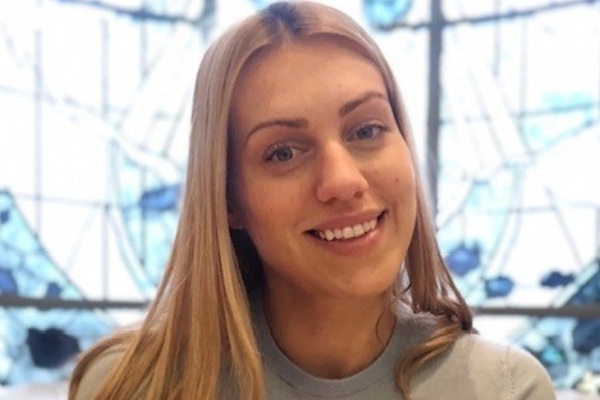Tell us more about your role at Providence Row?
I am part of the Advice and Support team. We are frontline workers, providing a different range of services to our clients. I specialise in psychotherapy and my job is to provide an outreach service. This means that I do psychotherapy sessions outside of the usual setting. I work with clients outside for instance, on the street, in hostels, community centres, libraries and churches. The possibilities are endless. For those clients who prefer a more traditional setting, I see them at our Dellow Centre, where I use a psychotherapy room.
Favourite aspect of your job?
The best thing about my job is that each day is different. I see my clients in a wide range of places, which gives me and them the opportunity to be very authentic and open-minded in our conversations. I am able to gain a real insight into some fundamental aspects of their lives. I am in a priviledged position to help them start looking at their crises and trauma in a different light. I feel fortunate to be able to help them in their journey to self-discovery.
What’s the most challenging aspect of your job?
There’s quite a bit of unpredictability to my work. Clients sometimes struggle to make appointments. They are already facing a lot of turmoil and chaos in their lives. They also find it difficult to open up. When clients miss appointments, I keep an open, objective mind. It’s a reminder that life gets messy and there is not much we can do about it but actually we can work with it and through it.
Favourite moment at Providence Row?
I have so many! The best thing about working here is that everyone is so friendly. My favourite moment to date is when one of my clients organised a charity bake sale to raise money for people who have cancer.
This proves that in the right environment, with the appropriate support, people are able to access different aspects of their personalities, which may have been closed off for a long time or were difficult to access. The more we enable our clients to think about who they are, the more we help them to put homelessness behind them.
What do you wish people understood more about homelessness?
I wish people would stop suggesting that homelessness is merely about lack of housing. The term does a disservice to people who are experiencing homelessness. Homelessness is more often a case of inner, psychological homelessness.
Allow me to explain. Some of my clients became homeless to escape an extremely dysfunctional, abusive environment, families or partners. And this decision to leave was the best decision they ever made. In that case, their homelessness is associated with safety, freedom, and self-care. As a charity we have to think about how best to support them to explore those feelings further, rather than blame them for lack of motivation, and an unconventional lifestyle.






